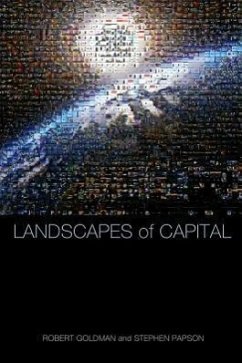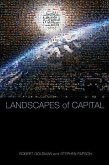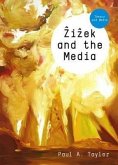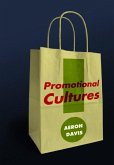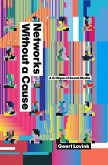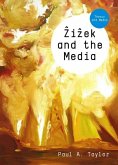Every era has its dominant representations. Just as landscape painters of previous centuries captured and expressed new modes of perceiving history, corporate advertisers now devise the imagined landscapes of global capitalism. Advertising functions as an omnipresent discursive form, publicly assembling and circulating the predominant tropes of our era. This project is based on the premise that corporate advertising's landscapes help shape our epoch's imaginative conceptualizations of the spatial relations, the temporal flows, and the cultural geographies that correspond to the emergence of a high-tech global economy. In Landscapes of Capital Robert Goldman and Steven Papson examine how corporate television ads from the last fifteen years have organized predominant images, tropes and narrative representations of a world in transition. The volume takes particular interest in how relations of space, time, speed, capital, technology and globalization are narratively represented in advertising. Goldman and Papson skillfully demonstrate how Capital represents itself at a moment of critical historical transition Ð the passage into high-tech globalization and the crises associated with it. They argue that corporate ads can be read to reveal how Capital represents itself and the world that is being wrought Ð in terms of the signifiers it prefers and the stories it tells.
Hinweis: Dieser Artikel kann nur an eine deutsche Lieferadresse ausgeliefert werden.
Hinweis: Dieser Artikel kann nur an eine deutsche Lieferadresse ausgeliefert werden.
"Goldman and Papson do for Marxist cultural studies what Einstein did for physics: they rethink the space/time of capital. In particular, they read our global capitalism visually and discursively by examining the way capital entices us into debt and domination via advertising. Although a traditional book, this is also a map into the interior space/time of global structures that appear to us as flickering images interrupting our televisual downtime. They demonstrate that there is no downtime, no uncolonized space."
Ben Agger, University of Texas at Arlington
"This luminous book is a gift for everyone trying to survive the terrible anti-utopia of the planetary and intergenerational Ponzi scheme of looting, mayhem, and dispossessed losers that is 21st-century capitalism. Goldman and Papson offer an inviting and accessible GPS for navigating this dangerous terrain that draws on a rich trove of images (the ads are cool!). In rigorous and compassionate analyses they brilliantly show how Capital itself has become branded to explain, as well as any book out there, the mental and material ecosystem that engendered the 2008 financial crash."
Diane Nelson, Duke University
Normal 0 false false false EN-US ZH-CN TH MicrosoftInternetExplorer4 st1\:*{behavior:url(#ieooui) } /* Style Definitions */ table.MsoNormalTable {mso-style-name:"Table Normal"; mso-tstyle-rowband-size:0; mso-tstyle-colband-size:0; mso-style-noshow:yes; mso-style-priority:99; mso-style-qformat:yes; mso-style-parent:""; mso-padding-alt:0in 5.4pt 0in 5.4pt; mso-para-margin:0in; mso-para-margin-bottom:.0001pt; mso-pagination:widow-orphan; font-size:11.0pt; mso-bidi-font-size:14.0pt; font-family:"Calibri","sans-serif"; mso-ascii-font-family:Calibri; mso-ascii-theme-font:minor-latin; mso-fareast-font-family:SimSun; mso-fareast-theme-font:minor-fareast; mso-hansi-font-family:Calibri; mso-hansi-theme-font:minor-latin; mso-bidi-font-family:"Cordia New"; mso-bidi-theme-font:minor-bidi;}
Ben Agger, University of Texas at Arlington
"This luminous book is a gift for everyone trying to survive the terrible anti-utopia of the planetary and intergenerational Ponzi scheme of looting, mayhem, and dispossessed losers that is 21st-century capitalism. Goldman and Papson offer an inviting and accessible GPS for navigating this dangerous terrain that draws on a rich trove of images (the ads are cool!). In rigorous and compassionate analyses they brilliantly show how Capital itself has become branded to explain, as well as any book out there, the mental and material ecosystem that engendered the 2008 financial crash."
Diane Nelson, Duke University
Normal 0 false false false EN-US ZH-CN TH MicrosoftInternetExplorer4 st1\:*{behavior:url(#ieooui) } /* Style Definitions */ table.MsoNormalTable {mso-style-name:"Table Normal"; mso-tstyle-rowband-size:0; mso-tstyle-colband-size:0; mso-style-noshow:yes; mso-style-priority:99; mso-style-qformat:yes; mso-style-parent:""; mso-padding-alt:0in 5.4pt 0in 5.4pt; mso-para-margin:0in; mso-para-margin-bottom:.0001pt; mso-pagination:widow-orphan; font-size:11.0pt; mso-bidi-font-size:14.0pt; font-family:"Calibri","sans-serif"; mso-ascii-font-family:Calibri; mso-ascii-theme-font:minor-latin; mso-fareast-font-family:SimSun; mso-fareast-theme-font:minor-fareast; mso-hansi-font-family:Calibri; mso-hansi-theme-font:minor-latin; mso-bidi-font-family:"Cordia New"; mso-bidi-theme-font:minor-bidi;}

